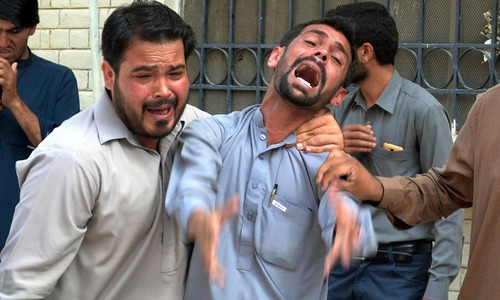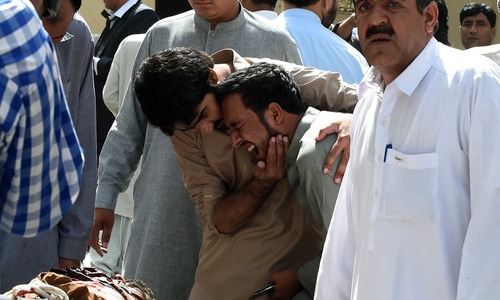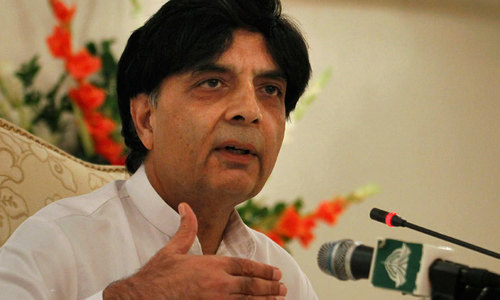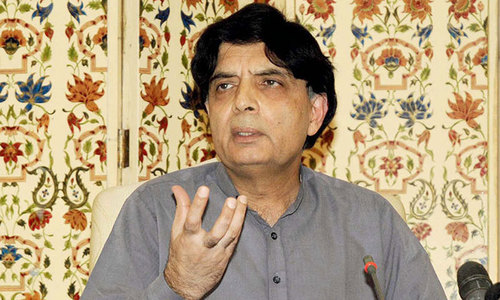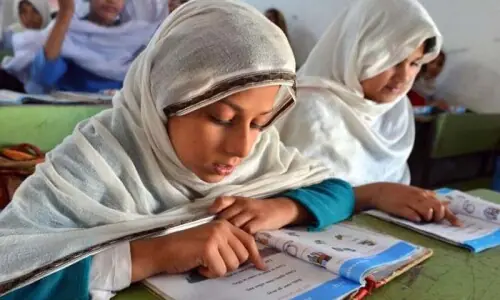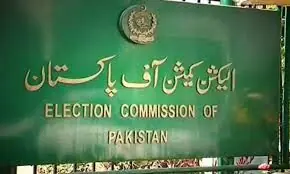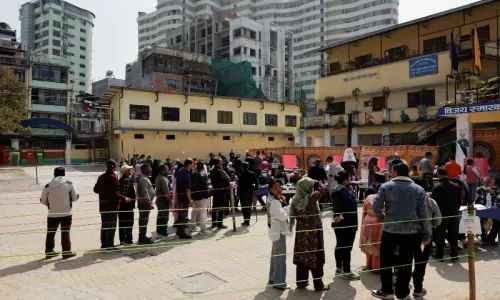ISLAMABAD: In its report on the Aug 8 militant attack on the Civil Hospital, Quetta, the Justice Qazi Faez Isa inquiry commission has underlined the need to make the country’s premier intelligence agency, the Inter-Services Intelligence (ISI), accessible to the public.
Even the people wishing to convey information to the spy agency about suspicious activities have no means to contact it, according to the report.
The 110-page report has pointed out that the ISI neither has a website nor an email account. When the commission checked whether the spy agencies of other countries too were inaccessible, it found out that almost all the important agencies had made their contact details, like telephone numbers and email addresses, public.
The Central Intelligence Agency, Federal Bureau of Intelligence and the National Security Agency of the United States have all provided their contact particulars on their publicly reachable websites.
The Military Intelligence Section 5, Secret Intelligence Service, National Counter Terrorism Security Office and the Counter Terrorism Command of the United Kingdom have also provided their contact particulars on their websites, according to the report.
The commission said that it wrote letters to the government functionaries, seeking information and answers to certain questions. Subsequently, responses were received from the Establishment Division, Finance Division, ministries of interior, religious affairs, states and frontier regions, Federal Investigation Agency, ISI, National Counter Terrorism Authority and office of the National Security Adviser. But none of the responses was on a letterhead. All of them were on plain pieces of paper which didn’t mention any address, email account or even a post office box number.
The responses from the governments of Balochistan, Gilgit-Baltistan, Khyber Pakhtunkhwa, Punjab and Sindh followed the same pattern.
The report said the commission, which was constituted by the Supreme Court, faced considerable difficulty in ascertaining the whereabouts of the ministries, government departments and agencies. One could only sympathise with the poor citizens who might have to interact with these organisations.
“If such nebulousness serves a purpose it could only be to remain aloof and unapproachable and therefore unquestionable and unaccountable,” the commission regretted.
The commission also expressed surprise over the role of the Frontier Corps (FC) and said it was not clear exactly what its role in Balochistan was and whether it had policing powers.
The report also cited the “confused response” at the highest level, as the chief secretary and commandant of the Ghazaband Scouts of FC said the FC had policing powers whereas the federal interior secretary stated that no such powers had been given to the corps.
Referring to the education boards of seminaries (wifaqs), the commission said it wrote letters to five of them — namely Wifaq-ul-Madaris-al-Salfia, Wifaq-ul-Madaris-al-Arabia, Wifaq-ul-Madaris-al-Shia Pakistan, Tanzeem-ul-Madaris Pakistan and Rabita-ul-Madaris-al-Islamia — and their association Ittehad Tanzeem Madaris.
The commission asked them about any mosque or madressah having direct or indirect links with the Jamaat-ul-Ahrar, Lashkar-e-Jhangvi, Lashkar-e-Jhangvi al-Alami or any other organisation banned under the Anti-Terrorism Act 1997.
The commission received responses from all the wifaqs stating that a total of 26,465 seminaries were affiliated to them. They said they were committed against the spread of hatred and extremism and stated that if any madressah affiliated to them indulged in wrongdoing they would proceed against those running it.
The Tanzeem-ul-Madaris Ahle Sunnat Pakistan, however, spoke of the difficulty in monitoring each madressah, and said the state was responsible for doing so.
Surprisingly, the ministry of religious affairs said the total number of registered seminaries stood at 11,852, adding that data from the Wifaq-ul-Madaris-al-Arabia was still awaited.
The commission regretted that the ministry did not possess even basic data about the seminaries nor did it appear to have the ability to obtain it. As per the information provided to the commission by the wifaqs, there were 26,465 seminaries in the country.
There is no central depository of the basic data, including the number of seminaries and their particulars, nor is the ministry, or any other authority in Pakistan, even now attempting to obtain and collate it, according to the report.
The state needs to have complete record of all the educational institutions in the country, including seminaries. Without such information it will not be possible to formulate and implement any strategy regarding them, nor take action against the errant ones, according to the commission’s report.
Published in Dawn, December 18th, 2016


